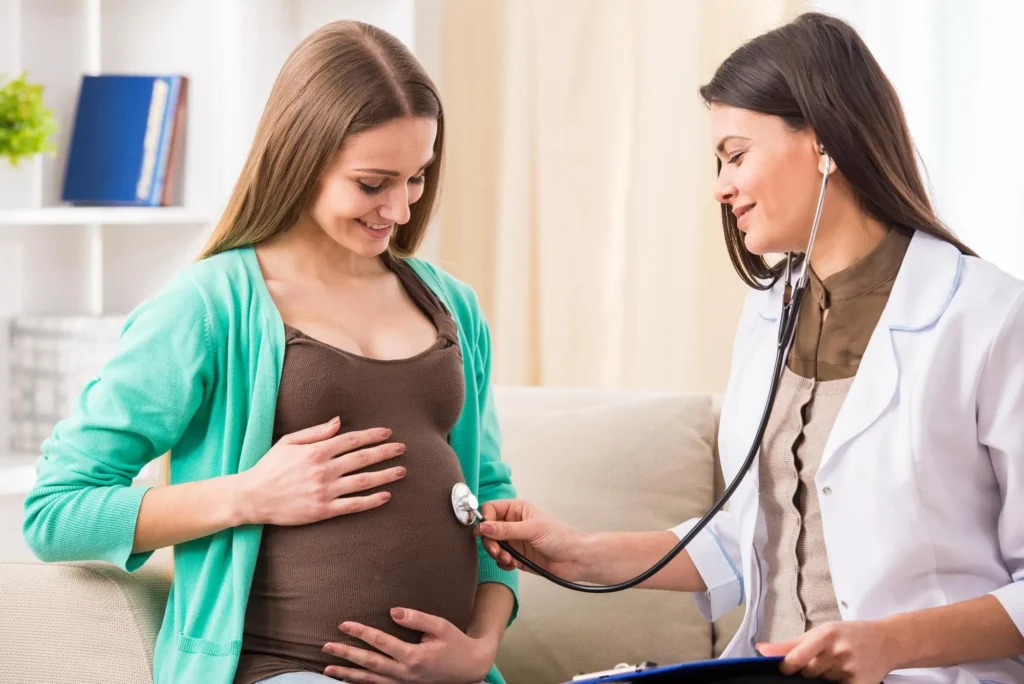Pregnancy is a transformative journey, and choosing the right support system is crucial for ensuring the health and well-being of both mother and baby. A reliable pregnancy care center provides medical, emotional, and educational support to help expectant mothers navigate their pregnancy with confidence. This guide explores the essential features, benefits, and services provided by these centers, empowering mothers to make informed choices.
What is a Pregnancy Care Center?
A pregnancy care center is a specialized healthcare facility that focuses on the needs of pregnant women. These centers offer services such as prenatal care, nutritional counseling, mental health support, and childbirth education. They are staffed by experienced professionals, including obstetricians, midwives, dietitians, and mental health counselors, ensuring comprehensive care throughout the pregnancy.
Why Choose a Pregnancy Care Center?
Selecting a pregnancy care center is an important decision for expectant mothers, as it directly impacts the quality of care received during one of the most significant phases of life. Here’s a detailed explanation of why these centers are essential:
1. Comprehensive and Holistic Care

Pregnancy care centers are designed to address all aspects of maternal health—physical, emotional, and educational. This holistic approach ensures that every stage of pregnancy is supported. Mothers receive:
- Regular Health Check-ups: To monitor fetal development and maternal health.
- Nutritional Support: Tailored meal plans to meet pregnancy-specific nutritional needs.
- Mental Health Counseling: Stress management and coping techniques to support emotional well-being.
2. Access to Expert Professionals
These centers bring together a team of specialists who are trained to handle the complexities of pregnancy. This includes:
- Obstetricians: For regular check-ups and medical supervision.
- Midwives: For personalized care and support during labor.
- Dietitians: To ensure the mother’s diet promotes optimal health for both baby and mother.
- Mental Health Experts: To address pregnancy-related stress, anxiety, and depression.
The presence of a multidisciplinary team ensures that mothers receive expert guidance tailored to their unique needs.
3. Advanced Facilities and Equipment
Modern pregnancy care centers are equipped with state-of-the-art medical technology, ensuring accurate diagnoses and safe procedures. Key facilities include:
- Ultrasound Machines: For monitoring fetal development and detecting abnormalities.
- Labor Rooms: Designed to provide comfort and safety during childbirth.
- Diagnostic Labs: For timely blood tests, glucose monitoring, and other essential screenings.
Having access to these advanced tools can provide peace of mind, especially for mothers experiencing high-risk pregnancies.
4. Education and Preparedness
Pregnancy is filled with uncertainties, but education can empower mothers to face them with confidence. Many care centers offer classes and workshops that cover:
- Childbirth Education: Understanding the stages of labor and delivery.
- Parenting Skills: Tips on newborn care, breastfeeding, and diapering.
- Emergency Preparedness: Knowing what to do in case of complications.
These programs not only prepare mothers for delivery but also equip families to care for their newborns effectively.
5. Tailored Services for High-Risk Pregnancies
For mothers with high-risk pregnancies, pregnancy care centers are invaluable. They provide:
- Specialized Monitoring: To track conditions like gestational diabetes or preeclampsia.
- Emergency Response Teams: Ready to act swiftly in case of complications.
- Personalized Plans: Adjusted schedules for check-ups and procedures to ensure safety.
This level of care minimizes risks and promotes a positive outcome for both mother and baby.
6. Emotional and Community Support
Pregnancy can be an emotional rollercoaster, and having a support network makes a significant difference. Care centers often host:
- Support Groups: Where mothers share experiences, fostering a sense of community.
- Counseling Services: For both parents to navigate the challenges of pregnancy and parenthood.
The emotional strength gained from these resources can enhance the overall pregnancy experience.
7. Postnatal Services
The journey doesn’t end at childbirth. Pregnancy care centers often extend their services to include postnatal care, such as:
- Recovery Support: Assistance with physical recovery after delivery.
- Breastfeeding Guidance: Access to lactation consultants for feeding challenges.
- Newborn Care: Education on soothing techniques, sleep routines, and health monitoring.
Services Provided at Pregnancy Care Centers
| Service | Description |
|---|---|
| Prenatal Care | Regular check-ups, ultrasounds, and fetal monitoring to ensure the baby’s growth and health. |
| Nutritional Counseling | Tailored dietary plans to meet the increased nutritional needs during pregnancy. |
| Mental Health Support | Therapy and counseling sessions to address stress, anxiety, or depression during pregnancy. |
| Childbirth Education | Classes on labor, delivery, and postpartum care to prepare mothers for childbirth. |
| Postnatal Care | Guidance on recovery, breastfeeding, and newborn care after delivery. |
What to Look for in a Pregnancy Care Center?
- Accreditation and Licensing
Verify that the center is certified by relevant health authorities to ensure high standards of care. - Qualified Staff
Ensure the center employs experienced obstetricians, midwives, and other specialists. - Facility and Equipment
A modern facility with up-to-date medical equipment enhances the quality of care. - Range of Services
Look for centers offering prenatal, postnatal, and childbirth education services under one roof. - Patient Reviews
Check online reviews and testimonials to gauge the experiences of other mothers.
Importance of Prenatal Care
Prenatal care is a cornerstone of maternal health. Early and consistent visits to a pregnancy care center can detect potential complications and provide timely interventions. Regular check-ups include:
- Blood tests to check for anemia or infections
- Blood pressure monitoring to prevent conditions like preeclampsia
- Routine ultrasounds to monitor fetal growth
Mental Health During Pregnancy
Pregnancy can bring a mix of emotions, and it’s normal to feel overwhelmed. A reputable pregnancy care center offers mental health counseling to help mothers manage stress and anxiety. Techniques such as mindfulness, therapy sessions, and support groups can provide significant relief.
Childbirth Education and Preparation
Childbirth education classes provide expectant mothers with essential knowledge about labor, delivery, and postpartum recovery. Key topics covered include:
- Understanding the stages of labor
- Pain management techniques
- Breathing exercises
- Preparing a birth plan
These classes foster confidence, reducing fear and anxiety about delivery.
Nutritional Needs During Pregnancy

Meeting the increased nutritional demands during pregnancy is vital for the baby’s development and the mother’s health. Common dietary recommendations include:
- Folic Acid: To prevent neural tube defects
- Iron: To maintain healthy blood supply for both mother and baby
- Calcium: To support the baby’s bone development
Pregnancy care centers often provide personalized meal plans to ensure balanced nutrition.
Common Challenges Addressed by Pregnancy Care Centers
- Morning Sickness
Centers offer tips and remedies, including dietary adjustments, to ease nausea. - Gestational Diabetes
Regular monitoring and meal planning help manage blood sugar levels. - Back Pain
Physical therapy and prenatal yoga are effective remedies.
Frequently Asked Questions (FAQs)
Q1: What services can I expect at a pregnancy care center?
A: Pregnancy care centers provide prenatal care, nutritional counseling, mental health support, childbirth education, and postnatal care.
Q2: Are pregnancy care centers suitable for high-risk pregnancies?
A: Yes, these centers often have specialized staff and equipment to manage high-risk pregnancies.
Q3: How often should I visit a pregnancy care center during my pregnancy?
A: The frequency of visits varies depending on the pregnancy stage. Early visits are typically monthly, increasing to bi-weekly and weekly closer to delivery.
Q4: Do pregnancy care centers offer breastfeeding support?
A: Many centers provide lactation consultants to help mothers with breastfeeding techniques and troubleshooting.
Q5: How do I choose the best pregnancy care center?
A: Consider factors like accreditation, qualified staff, services offered, and patient reviews when making a choice.
Choosing the right pregnancy care center is a crucial decision for expectant mothers. These centers provide a supportive environment for medical, emotional, and educational needs during pregnancy, ensuring a safe and healthy journey for both mother and baby. With specialized services, expert guidance, and a strong support network, pregnancy care centers empower mothers to experience a positive and fulfilling pregnancy.




